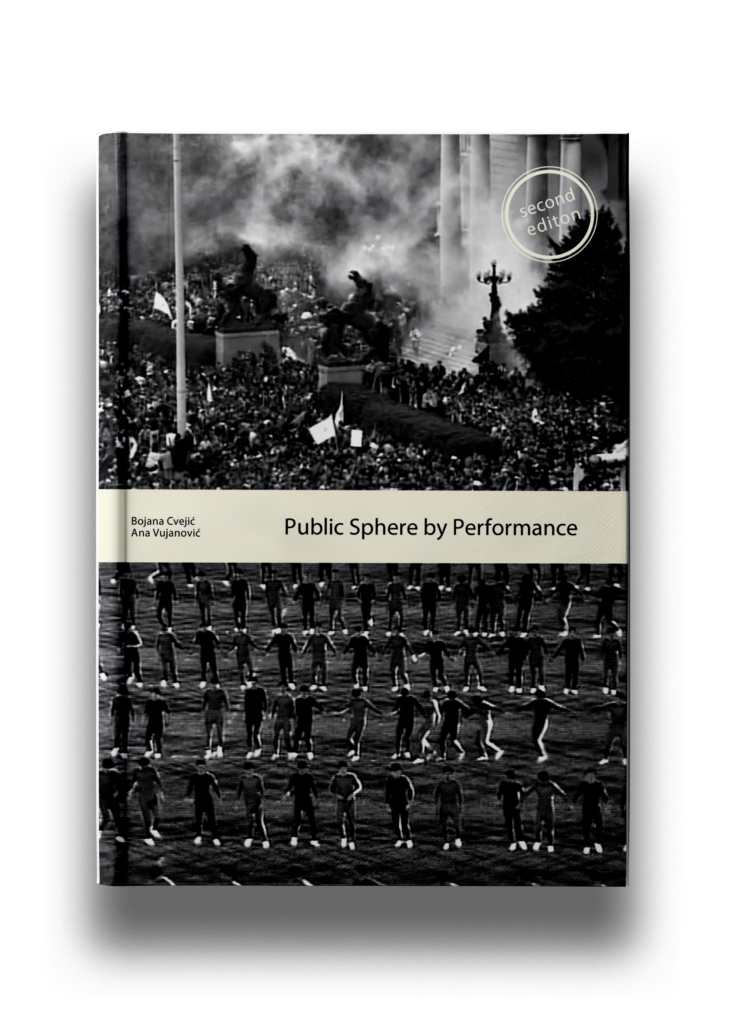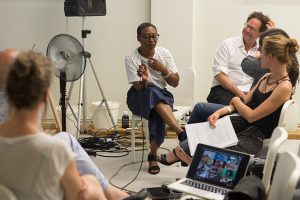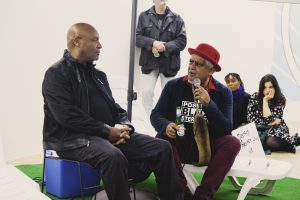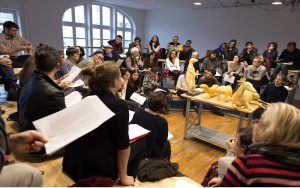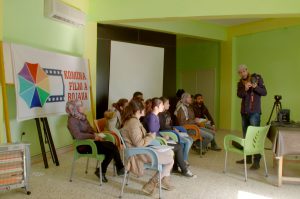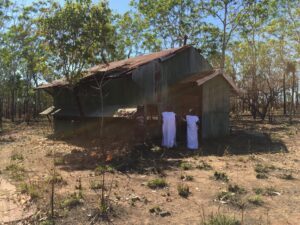Year
2012
Publisher
b_books
Author
Bojana Cvejić
Ana Vujanović
Annotation
How is ideology moving our collective body? What is the performance of the public sphere? How to think critically about the term ‘public’ as a potential participative democratic audience and how to act politically with our bodies? This book is a well-informed journey through political theory, performance studies, social choreography, the public sphere and its discontents in the neoliberal society with a special focus on the Yugoslavian legacy, a region that the authors stem from. It also comes with a film by a third member of the collective Walking Theory.
The film deals with the question of how ideology performed itself in public space through mass performances. The author collected and analyzed film and video footage from the period of Yugoslavia (1945 – 2000), focusing on state performances (youth work actions, May Day parades, celebrations of the Youth Day, etc.) as well as counter-demonstrations (’68, student and civic demonstrations in the ‘90s, 5th October revolution, etc.). Going back through the images, the film traces how communist ideology was gradually exhausted through the changing relations between the people, ideology, and the state.
Joanna Warsza
What was the role of the public? Did it effectuate changes? Moreover, even if it has had political and social effects, we are inclined to repeat John Dewey's question: was this public aware of the consequences of its actions? Did the citizen who euphorically hailed Milosevic in Gazimestan in 1989 want civil wars? Did the citizens of Belgrade and Serbia on October 5, 2000, know, when they thought they were choosing democracy, that they were also asking for capitalism? What did we ask for when we, as a public, arose in protest? And how does this correspond to what we got in return, supporting or opposing the one or the other political actor on the public scene? Some of these questions are answered through the cases we study and visually document in this book. Our goal is not to resolve political dilemmas related to the murky circumstances of Yugoslav history, but to offer conceptual analyses as well as tools to those who feel similarly unqualified or politically disabled and stultified, tools they may implement to critically envisage civil action in their own respective contexts.
